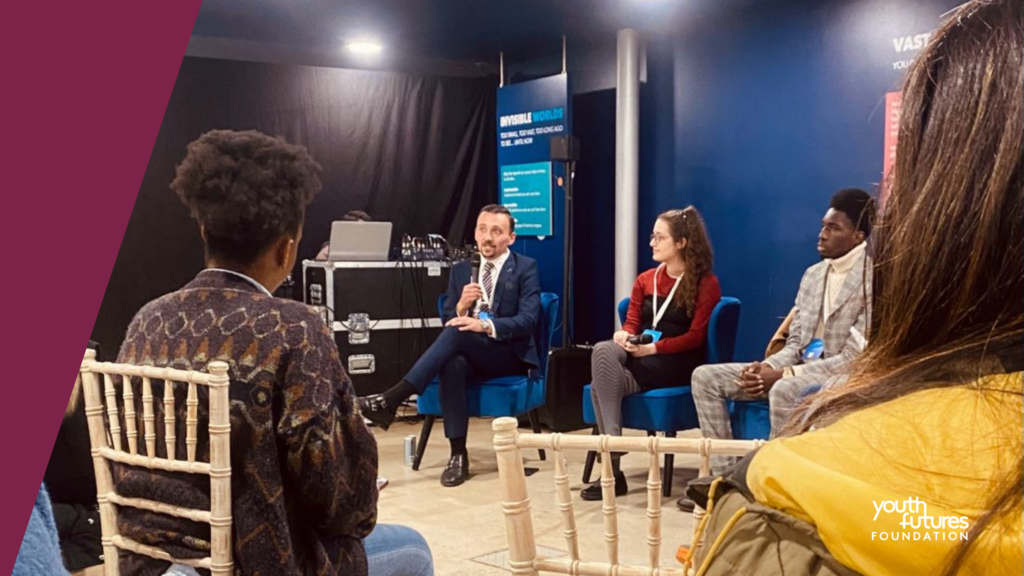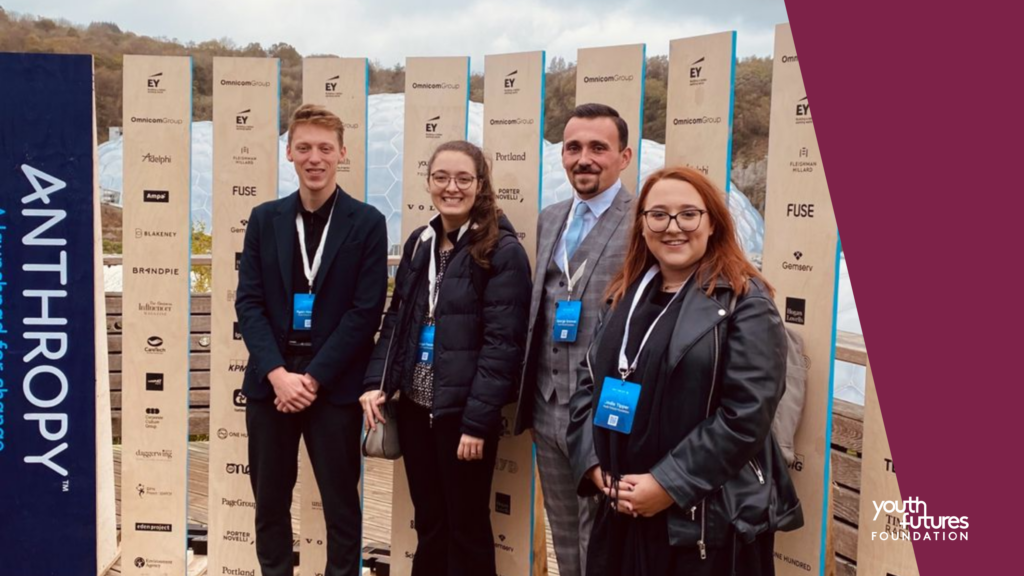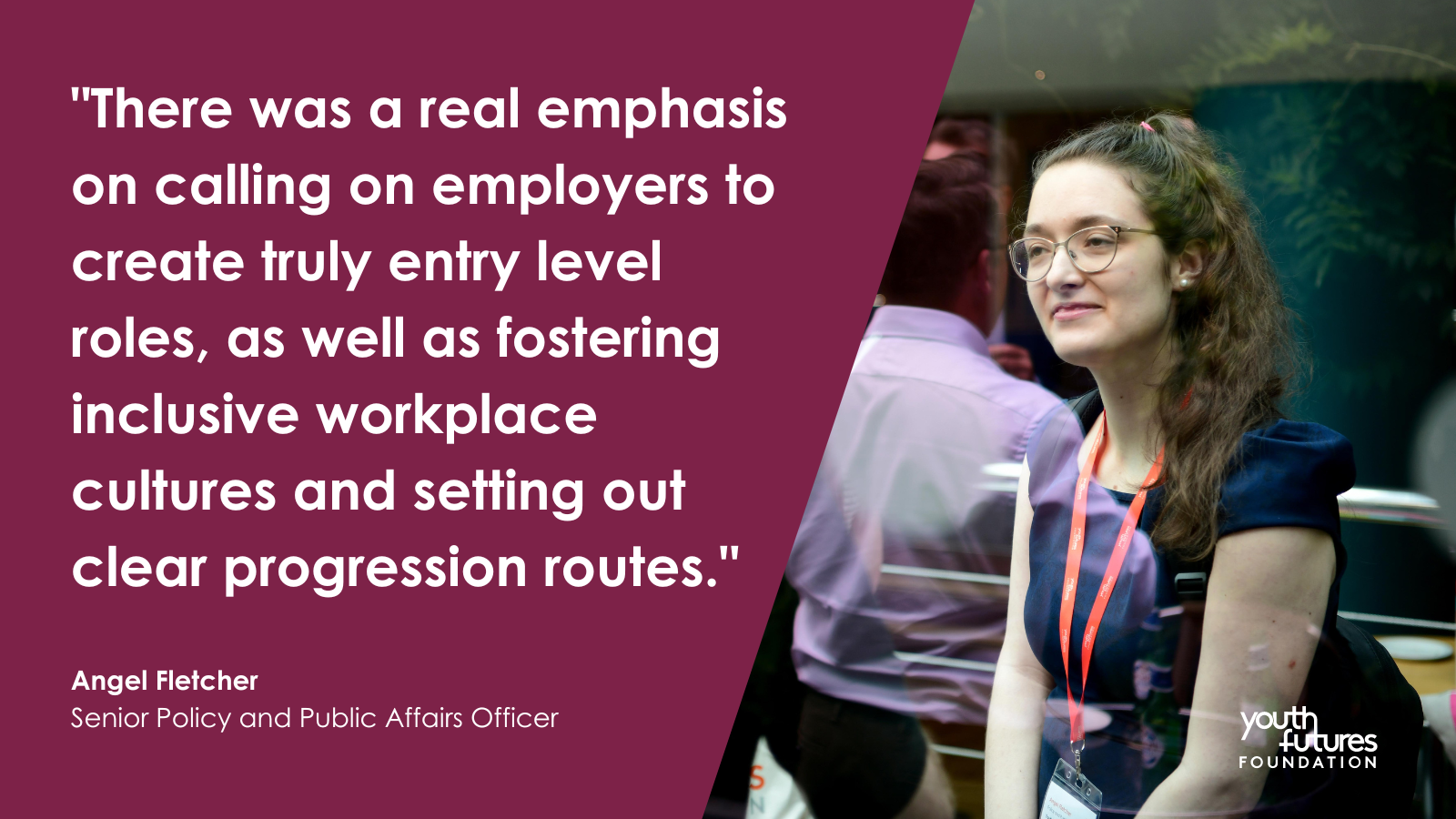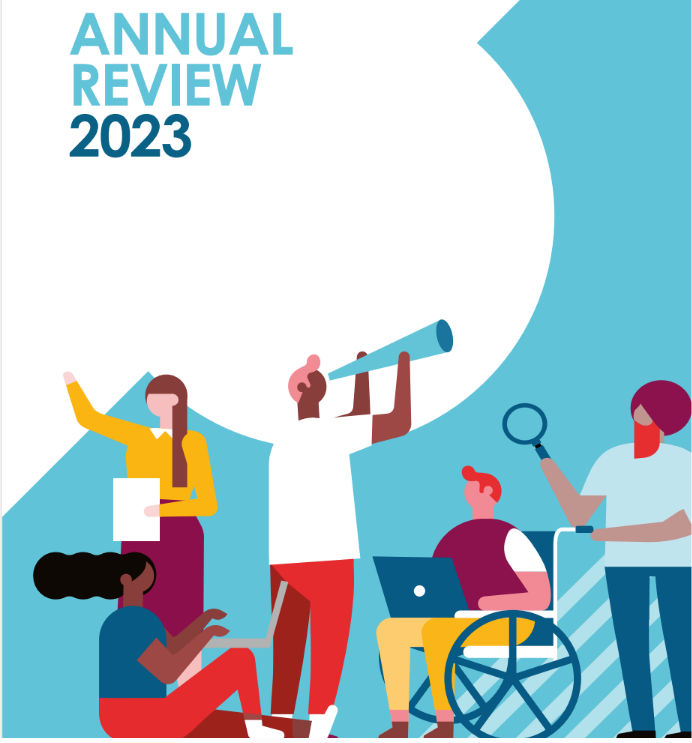As part of our series reflecting on our time at Anthropy 2022, our Policy and Public Affairs Officer, Angel Fletcher, explores the importance of youth voice and keeping young people and youth employment high on the policy agenda.
The Eden Project in Cornwall, a stunning venue with nature and biomes in every corner, was home to the first and flagship Anthropy event in November 2022. The three-day conference was an energising and important opportunity to tackle some of the biggest questions facing young people and Britain’s workforce. Youth Futures Foundation was proud to be an official content partner.
In spite of the scale of the event, and the venue being quite like no other, a golden thread came out of the interactive sessions and the conversations with other attendees.
Young people. Youth voice. Our jobs force of today and the future.
And we’re so thrilled that it did, and that we could lend our voices to champion those at the very centre of our work as a fully accredited What Works Centre for Youth Employment.
We’re proud at Youth Futures to have the Future Voices Group, – an inspiring team of 20 young people from across England with a diverse range of lived experiences, – woven into every element of our work. Be it informing our strategy, shaping our projects or more, we firmly believe in the principle “nothing about young people without young people,” and we put youth voice and participation at the heart of everything we do.
The discussions at Anthropy were rich and wide-ranging, with sessions focused on unlocking the creativity of the next generation, enterprise in schools, skills gaps, progression pathways, a keynote from Shadow Chancellor Rachel Reeves and several youth panels. Two of the most powerful quotes from the event were from the brilliant #IWill ambassadors, who featured on a panel alongside Youth Futures’ Non-Executive Director, Dame Julia Cleverdon:
“The future belongs to those who prepare for today. If we’re provided with more options, you’re provided with more choice.”
“If you talk to young people, they will nearly almost always come up with a solution. Often when having conversations about young people, we’re being spoken on behalf of.”

Our youth voice survey with Savanta ComRes last year showed that 71% of young people from ethnic minority backgrounds had faced discrimination when navigating the labour market or in the workplace. In a series of videos – produced last year by Future Voices Group alumni Isha, Ed and Roshan – Crystal, Jordan and Yi Kang share their views on the importance of supporting more young people from marginalised backgrounds into employment. This is just one example of the multiple barriers young people with protected characteristics have to navigate when looking for a job or whilst in employment. Another key thread in the discussion was that it is not enough to simply recruit young people, there also needs to be a big emphasis on supporting them to succeed in their roles. Youth Futures’ research with CIPD last year is a great example of how employers can practically do that for young people from less advantaged backgrounds in both recruitment and retention.
It was clear across the whole event, that young people want to see employers, educators, policymakers and civil society all working together to level the playing field and create pathways for accessing good quality jobs. And it was energising to see cross-sector appetite and agreement on needing to find solutions to do this.



